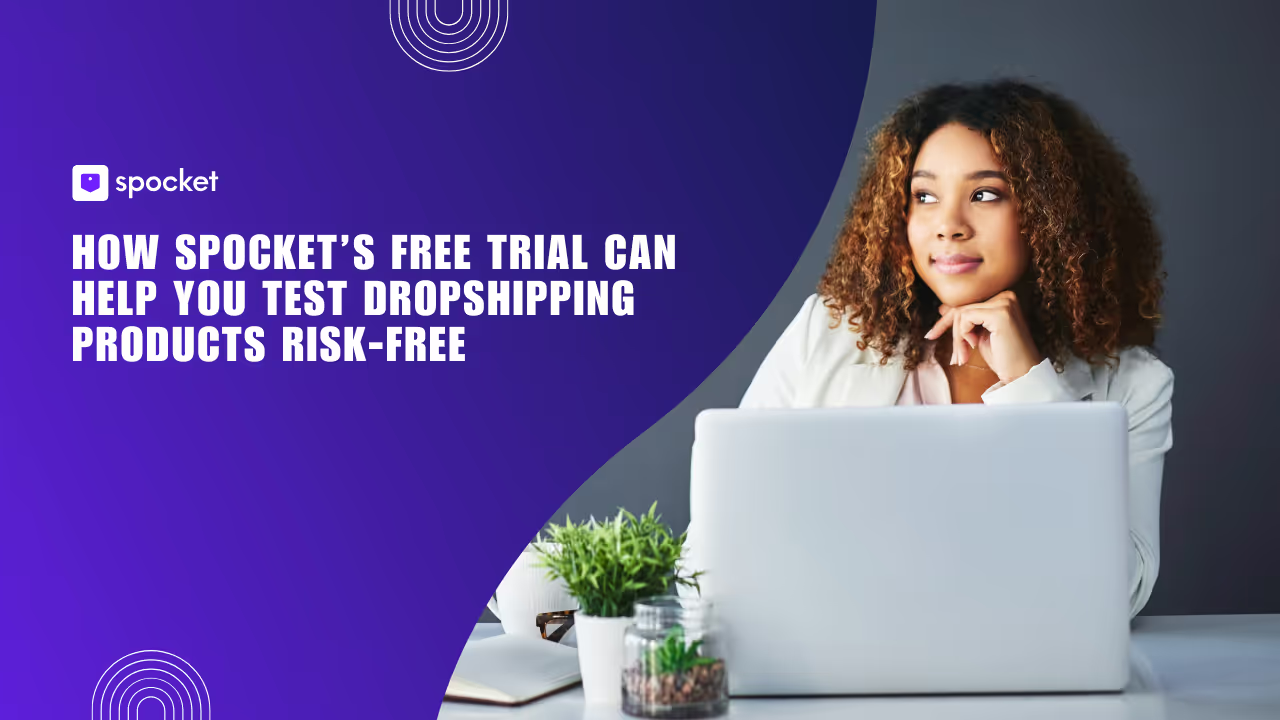Let’s be honest—dropshipping sounds like the dream, right? No warehouses, no huge upfront investment, just you, a laptop, and a business that runs on autopilot. But here’s the catch: that same dream has attracted plenty of scammers looking to cash in on eager sellers.
If you’ve come across horror stories about fake suppliers, vanished payments, or counterfeit products ruining customer trust, you already know how real the problem is. Dropshipping scams UK sellers face today aren’t always obvious—they often hide behind slick websites and tempting deals.
The good news? You can stay two steps ahead of them. This guide will walk you through how to spot red flags, verify suppliers, and protect your business before it’s too late. Think of it as your personal UK seller guide to running a safe, transparent, and profitable dropshipping store—without getting caught in someone else’s scam.
Fast Safety Checklist: 12 Must-Do Steps Before You Trust a Supplier
Before diving deep into the details, let’s start with something practical—a checklist you can actually use. Think of this as your pre-flight inspection before launching a new product or partnership. Each point here is designed to help you avoid scams UK sellers commonly fall for while building their dropshipping business.
1. Verify The Business Legitimacy
Start with the basics. Look up the supplier’s company registration on Companies House. If you can’t find a listing, or if their contact details don’t match what’s on their website, walk away. Legit businesses have nothing to hide.
2. Ask For Real Product Samples
A genuine supplier won’t hesitate to send samples. This not only shows confidence in their products but also gives you a chance to assess quality before trusting them with customer orders.
3. Use Trusted Platforms For Discovery
Working with verified platforms reduces risk dramatically. Marketplaces like Spocket pre-vet their suppliers, ensuring you’re dealing with legitimate businesses that already ship from the UK or EU. It’s not a shortcut—it’s smart risk management.
4. Check For UKCA Or CE Compliance
If you’re selling physical goods in the UK, compliance marks are non-negotiable. Ask for UKCA or CE certificates, especially for electronics, toys, or cosmetics. No documents? No deal.
5. Never Pay Via Wire Or Crypto
Wire transfers and crypto payments are almost impossible to recover. Stick to credit cards or PayPal, where you have fraud protection and can raise disputes if something goes wrong.
6. Research Supplier Reviews Outside Their Site
Don’t rely on testimonials displayed on their own website—they can easily be fake. Cross-check on Trustpilot, Reddit, or eCommerce forums to see what real sellers say.
7. Examine Shipping Transparency
Scammers love vague timelines like “7–25 business days.” Reliable suppliers will tell you exact delivery ranges and courier partners upfront.
8. Confirm Return And Refund Terms In Writing
If the return policy sounds too good—or too vague—it’s a red flag. Always get refund policies in writing and ensure they align with UK consumer law.
9. Compare Prices Across Multiple Sources
If a supplier’s prices look too low compared to the market average, there’s usually a reason. Compare with at least two other verified sources before signing anything.
10. Inspect Website Red Flags
Look for sloppy grammar, blurry images, or copied “About Us” pages. Scam sites often rush these details, while real suppliers invest in clarity and credibility.
11. Ask For References Or Existing Clients
A legitimate supplier will happily share client references or testimonials from other UK sellers. Scammers, on the other hand, will dodge the question or send vague responses.
12. Keep A Paper Trail
Every message, invoice, and email matters. If a dispute arises, your documentation becomes your best defense during chargebacks or fraud reports.
What Do You Mean By “Scam”? Distinguishing Fraud Vs Risky Practice
Not every bad experience in dropshipping is a scam. Sometimes it’s just poor communication, slow fulfillment, or cultural differences in business practices. Understanding this distinction is key—because when you know what you’re dealing with, you can respond the right way instead of reacting out of fear.
Real Scams That Target UK Dropshippers
These are the ones that cause real damage—the kind that takes your money and vanishes. Fake suppliers often pose as manufacturers, offering bulk discounts that sound irresistible. Once you send payment, they disappear without shipping a single product.
Other scams involve counterfeit goods, fake tracking numbers, or duplicate websites pretending to be legitimate distributors. These setups are designed to fool sellers quickly, cash out fast, and move on before anyone catches them.
If the communication feels rushed, the prices seem too good, or the deal relies on urgency, that’s your signal to slow down and verify everything.
Risky Practices That Aren’t Always Scams
On the flip side, not every frustrating supplier is out to trick you. Some simply lack experience, operate from different time zones, or don’t fully understand UK consumer standards. Maybe they delay updates, mess up packaging, or send replacements late—but that doesn’t automatically make them scammers.
These situations can often be resolved with better contracts, clear communication, or by switching to a verified marketplace like Spocket where suppliers are vetted for reliability.
Why This Distinction Matters
Treating every inconvenience as a scam can make you overly cautious and stall your business growth. But ignoring red flags can burn your brand’s reputation overnight. The smart move lies in the middle—stay alert, but stay objective.
You’re building a business, not fighting a war. Knowing when to investigate and when to negotiate will save you money, protect your reputation, and help you focus on scaling instead of stressing.
Top 14 Dropshipping Scams UK Sellers Face (And How To Spot Them)
Now that you know the difference between a scam and a sloppy business, it’s time to get specific. These are the most common traps UK dropshippers fall into—some old, some newly evolved. Recognizing these patterns early will help you stay calm, confident, and in control.
1. Fake Wholesalers And Shell Companies
These scammers set up convincing websites with fake business numbers and glossy stock images. They claim to be “UK-based suppliers” but disappear once you make the first payment. Always cross-check their registration on Companies House and confirm their address through Google Maps or Street View.
2. Bait-And-Switch Samples
This one’s sneaky. You order a sample, and it looks great. But once you start selling, the products your customers receive are low quality or entirely different. The only way to prevent this is to order from multiple addresses or inspect the same item twice before committing to a bulk deal.
3. Counterfeit Or Non-Compliant Products
Many overseas sellers push fake branded items or goods without UKCA or CE marks. Selling them puts your business at legal risk. Always request compliance documentation. If they hesitate, that’s your cue to move on.
4. Hidden Shipping And Handling Fees
Scammers often lure you in with cheap unit prices, only to add “unexpected” shipping, packaging, or customs fees later. Legitimate suppliers are upfront about all costs before payment.
5. Misleading “British Brand” Claims
Some sellers use UK flags, London addresses, or “British design” phrases to appear local, when they’re actually shipping from overseas. The ASA has cracked down on this practice, and it can get you banned from platforms. Verify where your supplier actually fulfills orders from.
6. Fake Social Media Stores
You’ve probably seen those “Make £10k/month” ads selling done-for-you dropshipping stores. Most of them are scams that deliver recycled templates with no backend access or support. Avoid any seller who promises guaranteed profits.
7. Ghost Fulfillment Centers
A growing trend is suppliers pretending to have UK warehouses when they don’t. They’ll provide fake addresses or third-party P.O. boxes. You can test this by placing a small order and tracking where the parcel originates.
8. Inflated Subscription Tools
Some “dropshipping automation” tools overpromise results and hide expensive subscription renewals. Stick to well-known, vetted tools with clear pricing and transparent reviews.
9. Payment Outside Secure Platforms
A classic scam move is convincing you to pay “directly” to avoid platform fees. Once you send money via wire or crypto, there’s no protection. Keep every transaction on trusted platforms that offer dispute resolution.
10. Phishing And Copycat Websites
Scammers often clone real supplier sites, changing just a few details like the URL or logo. Always double-check web addresses and email domains before logging in or sending any data.
11. Out-Of-Stock Deception
Some suppliers pretend to have items in stock just to secure your payment. Then they delay refunds or offer low-quality substitutes. Always ask for real-time stock confirmation before listing any new products.
12. Fake Tracking Numbers
You receive a tracking number, but it never updates or leads to a random destination. Scammers use this trick to buy time before disappearing. Use verified tracking services and check tracking consistency before confirming fulfillment.
13. Chargeback And “Friendly Fraud”
Sometimes, it’s not the supplier but the buyer scamming you. Customers falsely claim non-delivery or damaged goods to get refunds. Keep proof of shipment, signed delivery receipts, and chat logs to protect your business.
14. Mislabelled Return Addresses
Some sellers list UK return addresses but require customers to send items to China or another region. This violates UK consumer rights and damages your credibility. Always verify where returns are processed.
UK Legal And Advertising Compliance That Turns “Looks Like A Scam” Into Legit Trust
Spotting scams is only half the battle. The other half is building a store that looks and operates legitimately under UK law. This is where most new sellers fall short. Following UK advertising and consumer protection rules doesn’t just keep you out of trouble—it also helps you earn long-term trust with customers.
Changes To ASA And CAP Rules Under Updated Consumer Protection Laws
The Advertising Standards Authority (ASA) and the Committee of Advertising Practice (CAP) recently tightened rules around misleading ads. This includes claims like “UK-based,” “locally made,” or “British brand” when the products actually ship from overseas.
If your supplier fulfills from outside the UK, you must disclose that clearly. Failing to do so can lead to complaints, ad removals, or even bans. Transparency isn’t optional—it’s what builds credibility in a crowded market.
Fake Reviews And Misleading Social Proof
Posting fake testimonials or edited reviews is now a serious violation under UK advertising law. Rule 3.45 of the CAP Code makes it illegal to manipulate reviews or present unverifiable claims.
The easiest fix? Only use verified customer feedback. Avoid copy-pasted “sample reviews” from suppliers. If you’re using platforms like Spocket, you can rely on real performance ratings that come from verified store owners—no guesswork involved.
Drip Pricing, Hidden Fees, And Full Disclosure
The ASA also targets hidden charges and “drip pricing” practices—where sellers advertise a low price, then surprise customers with fees at checkout. You’re legally required to show the total price, including VAT, shipping, and any handling costs upfront.
Being upfront about costs doesn’t scare customers away—it builds trust. Shoppers appreciate clarity more than low prices that turn into expensive surprises.
Accurate Origin And Fulfillment Information
If your website says “UK warehouse” or “UK shipping,” make sure that’s true. The ASA recently ruled against a brand called Marble Muse for misleading consumers with fake UK origin claims. If your supplier is overseas, mention estimated delivery times and fulfillment regions clearly.
Honesty about where products come from doesn’t weaken your brand—it strengthens it. Customers prefer real transparency over fancy marketing.
UKCA, CE, And Product Safety
Every product sold in the UK must meet safety standards. For electronics, toys, and cosmetics, this means having UKCA or CE certification. Always ask your suppliers for these documents before listing products. If they can’t provide them, that’s a red flag waiting to explode.
This step protects both your business and your customers. Selling non-compliant products can result in fines or forced recalls—and no brand wants that kind of attention.
Refunds, Returns, And The Consumer Contracts Regulations
Under UK law, customers have 14 days to cancel an online purchase and request a refund. Your store must have clear terms explaining how returns work, including where items are sent back.
If you’re working with overseas suppliers, make sure they can process UK returns or offer local return labels. Spocket, for example, includes supplier terms that align with UK consumer expectations, helping you avoid refund chaos later.
Vetting Suppliers Like A Pro: UK-Specific Due Diligence Workflow
Legal compliance builds trust—but before you can even think about marketing or scaling, you need reliable partners. Vetting suppliers isn’t about paranoia; it’s about protecting your money, your customers, and your brand’s reputation. Here’s a step-by-step workflow tailored for UK sellers to help you filter the good from the fake.
Step 1: Verify The Company And Identity
Start by checking if the business is officially registered with Companies House. Look for active filings, director names, and an actual business address. If the company claims to be UK-based but doesn’t appear in the register, that’s a deal-breaker.
You can also run a quick domain background check using WHOIS to see how old the website is. Scam sites are usually less than six months old, with generic or hidden ownership details.
Step 2: Request Product Compliance Documents
Don’t just ask for sample photos—ask for proof. A legitimate supplier should provide UKCA or CE certificates, test reports, and safety declarations for regulated products. If they stall, send vague excuses, or share incomplete paperwork, assume they don’t have the credentials.
This step is especially important for electronics, cosmetics, and anything that touches skin or food. It’s not about bureaucracy—it’s about safety.
Step 3: Order Trial Samples And Compare Consistency
The best way to confirm quality is to see it for yourself. Place one sample order under your name and another under a friend’s or family member’s name. Compare the products. If they differ in quality, packaging, or branding, you’re dealing with a bait-and-switch supplier.
This small investment saves you from big problems later. It’s much cheaper to lose £30 on a test order than thousands on customer refunds.
Step 4: Set Clear SLAs And Contracts
A handshake won’t cut it in dropshipping. Create written agreements that outline processing times, return terms, refund windows, and acceptable quality levels. This ensures both parties know what’s expected—and gives you legal backing if something goes wrong.
You don’t need a lawyer for every detail, but templates help. Include basic clauses about order fulfillment, communication response times, and return responsibilities. If a supplier refuses to sign or dismisses your terms, that’s all the clarity you need—they’re not worth it.
Step 5: Use Secure Payment Channels
Never send money directly through wire transfers or unverified methods. Use credit cards, PayPal, or platform-based payments that offer fraud protection. Even better, stick to marketplaces that manage payment processing for you.
Step 6: How Spocket Fits Into This Workflow
%20(1).avif)
If you’re tired of guessing who to trust, platforms like Spocket simplify this entire process. Every supplier on the platform goes through a strict verification check, including quality reviews, shipping audits, and ongoing performance monitoring.
This doesn’t mean you should blindly trust anyone—but it gives you a solid head start. Instead of spending weeks researching random suppliers, you can focus on testing products that already meet baseline standards.
Conclusion
Dropshipping in the UK doesn’t have to be risky or overwhelming. Once you understand the patterns behind scams—fake suppliers, false “UK-based” claims, or shady payment requests—you’re already ahead of most new sellers. The key is simple: verify everything, stay transparent, and protect your business with clear processes.
By using trusted platforms like Spocket, keeping detailed records, and following UK compliance laws, you can turn uncertainty into confidence. Building a scam-free store isn’t about fear—it’s about control. With the right systems in place, your business becomes stronger, your reputation grows, and your customers trust you from the very first order.




















































